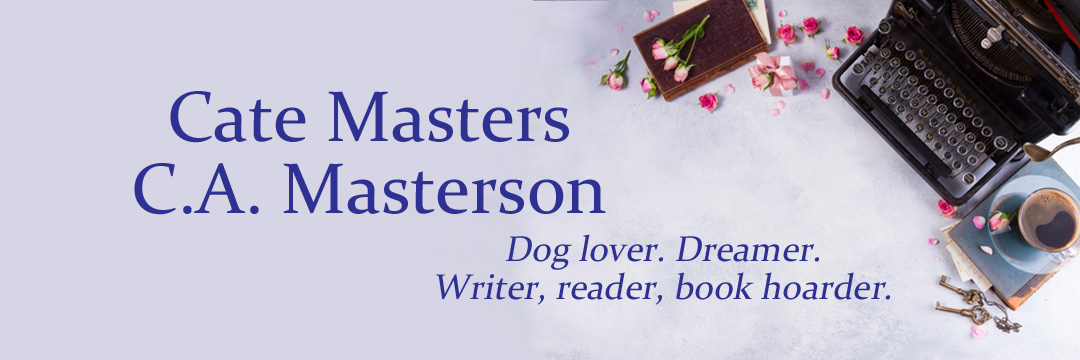A topic I wanted to tackle this week was point of view, known in the writing culture as POV. I was never a great fan of head-hopping. I much prefer deep POV, although I've heard others express intense dislike for it. To me, it allows you to be completely immersed in what the protagonist experiences - an intense way of engaging a reader.
In certain instances, I like climbing inside various characters’ heads if the author doesn’t yank me there without warning.
Barbara Kingsolver’s The Poisonwood Bible is a great example of POV switches executed in a clearcut manner.
My NaNoWriMo story is an historical romance set in Key West, an island with a truly fascinating history (more on that later). Head-hopping is very much a staple of the romance genre. While it’s not my first attempt at writing from various characters’ views, this story marks my first attempt in the romance style of POV switching. I’m very aware of how jarring it can be to be jerked unexpectedly from one character’s thoughts to another, so am very careful to keep the various sections to one POV only.
The upside of head-hopping is, obviously, a reader can then better empathize with both the male and female protagonist. Seeing both sides of the conflict is a way for the reader to see the proverbial train crash before it happens, and hopefully make it a better reading experience.
Point of view is a complex issue, so I’ll continue with more on the subject in the coming weeks. For anyone unfamiliar with its complexity, check out
New York University’s overview of the various POV choices.
Oh, and some good news also arrived this week:
The Battered Suitcase will publish my short story, All is Calm, All is Bright, next month.
The Wild Rose Press also accepted Going with Gravity in their Champagne (contemporary) line. Look for it in mid to late 2009. The unofficial story blurb and excerpt are below.
Going with GravityBlurbPublicist Allison Morris plans her own life – what’s left of it – around the life of her boss Michelle McCarter, the ex-wife of a famous rock star. When Michelle needs emergency public relations patchwork in Hawaii pronto, Allison arranges a flight to the dream destination. At the airport, she meets Wes Hamilton, a six-foot-three sun-bleached blond whose blue eyes and dazzling smile rekindle her fizzled-out sizzle. A world-renowned surfer, Wes captivates her with his charm and wit, though his easy fame and on-the-edge lifestyle are the polar opposite of her own. When their jet loses its fuselage in mid-air, she takes advantage of what she thinks are her last minutes alive with Wes. The plane lands safely. Wes takes care of her when her carefully constructed life begins to unravel. When Michelle accuses Allison of using Wes to gain fame for herself, Allison’s world falls apart in an explosive confrontation. Wes is waiting with open arms when she has nowhere else to go, but can Allison learn to stop planning and go with gravity?
ExcerptAllison pulled her portfolio from her laptop case and set it on her lap, afraid to open it. As soon as the articles had arrived on her fax machine, she’d shoved them into her bag, then hopped in the shower. Delay tactics only worked for so long. The moment of truth had arrived. She opened it and thumbed through. Eleven pages. Eleven. And these were only the newspaper articles from the past two days. TV and online news sites surely covered more. And then there’d be the inevitable blogger. Uncontrollable, overly opinionated and accountable to no one, they were the worst.
Michelle had arrived on Oahu with a bang, and then had the audacity to blame Allison for not doing her job to quell the media. She held up one photo of a topless Michelle prancing in the surf, laughing. Rumors and innuendo could be stopped with logic and tact, but to downplay this photo, she’d need a good explanation. When Michelle’s logic and tact failed her so obviously, Allison had to wonder about her mental state.
A hulking figure filled the aisle, stowing his bag in the overhead compartment.
Those shorts. That shirt.
It was him.
He checked his ticket, looked at her and smiled. His blond hair fell across his forehead as he sat next to her, his shoulder bumping hers. “Hello again.”
For two years, she’d rubbed elbows with stars of all magnitudes without so much as a blink, and fended off paparazzi following the wife of megastar James McCarter.
With two words, she’d been reduced to the rank of dreamy-eyed teeny bopper.
He smiled, raised an eyebrow.
She realized, then, she hadn’t responded. And her mouth hung open.
Make that drooling dreamy-eyed teeny bopper.
She flashed a smile.
Think. Damage control is your business. Put it to good use for once.“Hi.”
Oh, yes. Very witty. What a deft deflection of his charm.She turned back to her articles, but sensed the weight of his stare.
He frowned at her reading material. “Sorry. Didn’t mean to read over your shoulder. I take it you’re a closet fan of the poor little rich girl?”
“In the same way I’m a closet fan of train wrecks, I suppose. I guess you’re not a fan.”
“Of hers?” He chuckled. “God, no. She’s awful. Her publicist should be shot.”
Shot. Of course. Working fifty-five to sixty-five hours a week wasn’t enough to keep the spin spinning fast enough for the rest of the world. The one guy who’d interested her in the past two and a half years thought she made a good candidate for execution. Her life was in such a rut, she’d need mountain climbing gear to get out.
“If you’re a fan, I didn’t mean to offend.” Sincerity had wiped the smile from his face.
“Actually, I’m..” She turned and smiled, “…her publicist.”









